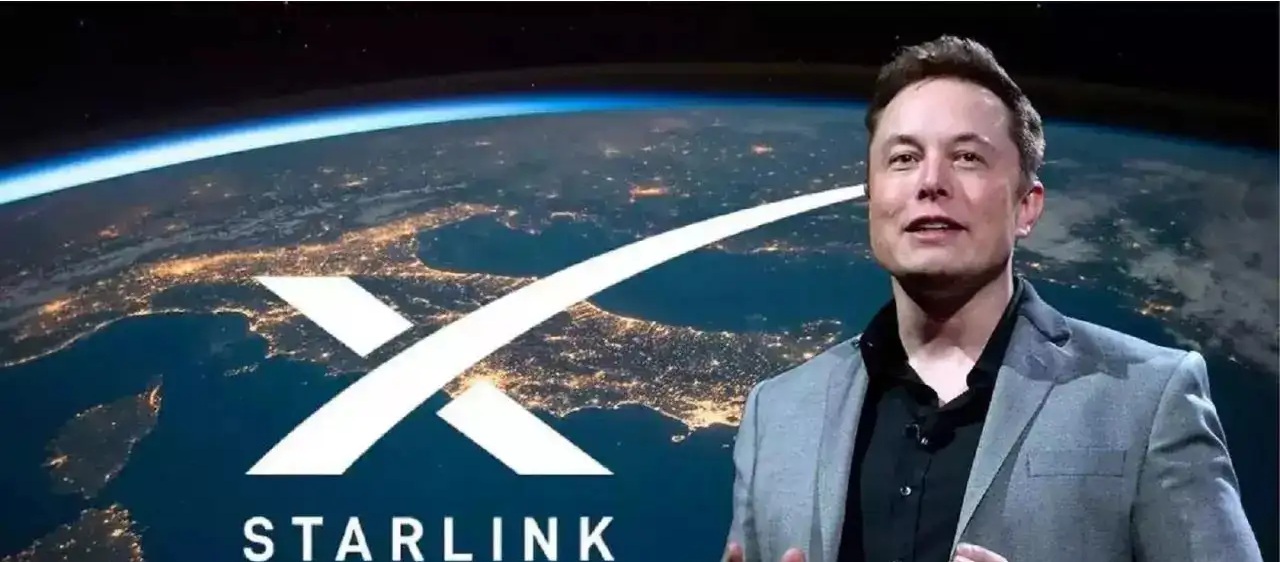Elon Musk’s Starlink network recently experienced a significant service outage that disrupted internet connectivity for thousands of users across the globe for several hours, prompting an official apology from the satellite internet provider.
The disruption occurred on Thursday afternoon, with widespread reports indicating a “total blackout” of Starlink services.
It impacted users from a diverse range of locations including the United States, Germany, Zimbabwe, and beyond.
Starlink, operated by SpaceX, the aerospace and telecommunications company founded by Elon Musk, is a satellite internet constellation designed to deliver high-speed broadband connectivity worldwide, especially targeting underserved and remote areas.
Currently, Starlink provides service to approximately 130 countries and territories, offering an innovative alternative to traditional internet infrastructure by relying on a network of low Earth orbit satellites.
The outage began before 4 p.m. Eastern Time, with thousands of users flooding Downdetector, a website that tracks service interruptions, to report complete loss of connectivity.
At the peak of reports, about 65% described the problem as a total blackout, causing significant frustration among customers who rely heavily on Starlink’s service for work, education, and communication.
Recognizing the severity of the disruption, Starlink’s official X (formerly Twitter) account promptly issued a statement at around 8:15 p.m. ET, confirming that the network issue had been resolved and services were restored.
The company acknowledged the critical importance of uninterrupted internet access in users’ daily lives and extended a formal apology for the inconvenience caused.
“We understand how important connectivity is and apologize for the disruption,” the message read.
Elon Musk himself engaged with the situation on social media, reposting Starlink’s announcement while also personally apologizing to users affected by the outage.
Musk reassured customers that the issue was temporary and emphasized that SpaceX would identify and address the root causes to prevent similar interruptions in the future.
He underscored SpaceX’s commitment to reliability with a promise that “SpaceX will remedy root cause to ensure it doesn’t happen again.”
The outage highlighted one of the main vulnerabilities of satellite internet providers.
Unlike terrestrial broadband services, satellite internet is dependent on a constellation of orbiting satellites and ground infrastructure, which, if disrupted, can affect wide geographic areas simultaneously.
Users reported experiencing sudden and complete loss of service, which, for many, left few alternatives.
One customer on X noted their reliance on mobile 5G networks as a fallback, pointing out, “the only downfall to Starlink is when it goes down, your only alternative is your phone network.”
The incident sparked discussions in tech and telecommunications circles regarding the resilience of satellite internet technology amid increasing global dependence on continuous connectivity.
Starlink has been lauded for its ability to provide internet access in rural and disaster-stricken regions where traditional infrastructure is inadequate or damaged.
On the other hand, outages like this underscore the challenges inherent in maintaining a vast space-based network.
In recent years, Starlink has rapidly expanded both its satellite fleet and customer base, positioning itself as a critical player in the global broadband industry.
Its low Earth orbit satellite constellation reduces latency compared to older satellite internet systems, making it competitive with ground-based providers.
Starlink’s strategic importance has grown, particularly where geography or infrastructure limitations hinder traditional internet deployment.
However, with growth comes operational complexity, and ensuring network stability requires continuous technological refinement.
Industry experts suggest that while such outages are inconvenient, they also provide valuable data for continued improvement.
Satellite internet networks contend with factors such as orbital dynamics, satellite hardware reliability, ground station performance, and space weather, all of which must be effectively managed to deliver consistent service.
In summary, the recent outage experienced by Elon Musk’s Starlink satellite internet network affected thousands of users worldwide.
highlighting both the promise and current limitations of satellite-based broadband technology.
SpaceX’s swift resolution and transparent communication, backed by Musk’s personal engagement, aimed to reassure customers and maintain trust amid growing dependence on Starlink services.
As Starlink continues to scale its operations, ensuring network robustness and rapid recovery from disruptions will be essential to solidify its position as a global telecommunications provider.







